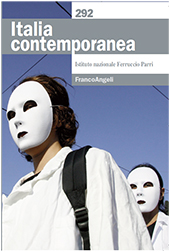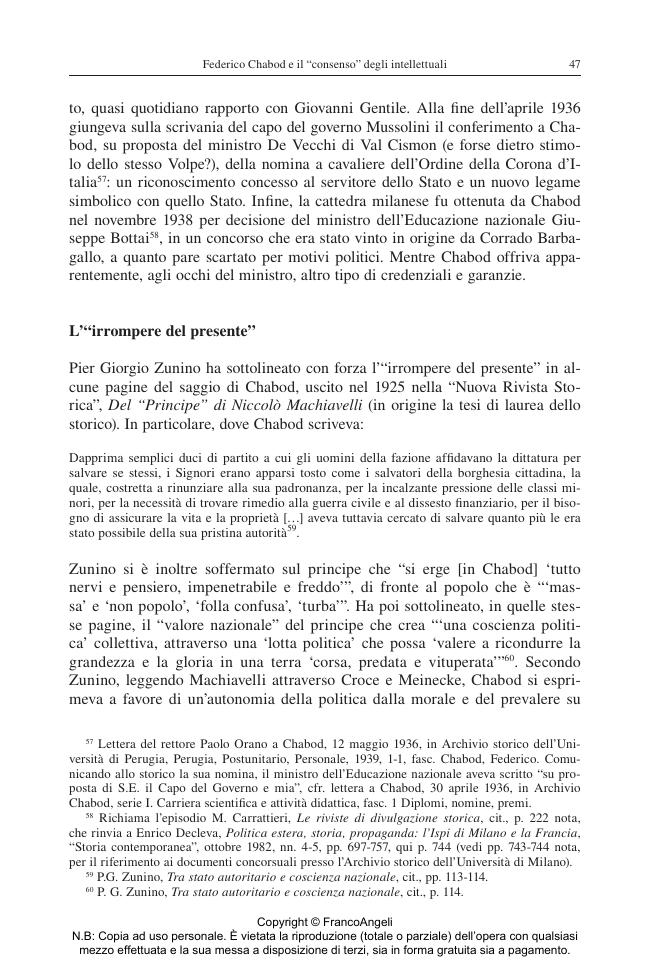Federico Chabod e il consenso degli intellettuali : un itinerario tra fascismo e dopoguerra
34- 59 p.
L'articolo ripercorre alcuni principali aspetti dell'itinerario dello storico Federico Chabod tra fascismo e dopoguerra. Se nel 1943-45 egli militò nella Resistenza, dai primi anni Trenta fino ai primi anni della Seconda guerra mondiale Chabod fu interno alle istituzioni universitarie, scientifiche e culturali del fascismo, in sedi di primaria importanza e in stretti rapporti con Gioacchino Volpe e Giovanni Gentile. Fin dai suoi scritti giovanili su Machiavelli lo storico mostrò la propria apertura verso una soluzione di Stato forte a guida autoritaria e più tardi approvò la politica estera del regime, cedendo talora alla retorica nazionalista e imperialista del periodo. Chabod si mostrò inoltre attivo funzionario della burocrazia universitaria e culturale del fascismo mentre, in sede di giudizio storico sul ventennio, riconobbe tra i primi l'esistenza di un consenso al regime fascista. [Testo dell'editore].
The article examines some of the main aspects of the itinerary from fascism to the postwar period of the historian Federico Chabod. If between 1943 and 1945 Chabod would fight in the Resistance, from the early 1930s to the first years of the Second world war, he was part of fascism's major university, scientific and cultural institutions. Since his early writings on Machiavelli, Chabod demonstrated his opening toward the strong State with an authoritarian leader. Later, Chabod approved the regimes' foreign policy and at times he conceded to the nationalist and imperialist rhetoric of the time. Moreover, the historian appears to have been an active officer of fascism's university and cultural bureaucracy, while as a historian writing about fascism, he was one of the first to acknowledge the existence of a consent toward the regime. [Publisher's text].
Is part of
Italia contemporanea : 292, 1, 2020-
Articles from the same issue (available individually)
-
Information
ISSN: 2036-4555
DISCIPLINES
KEYWORDS
- Federico Chabod, storici, fascismo, consenso, intellettuali, stato
- Federico Chabod, historians, fascism, consent, intellectuals, state



